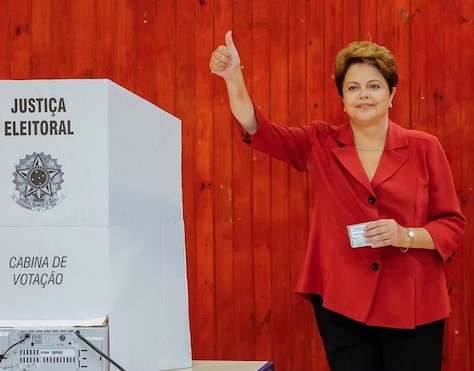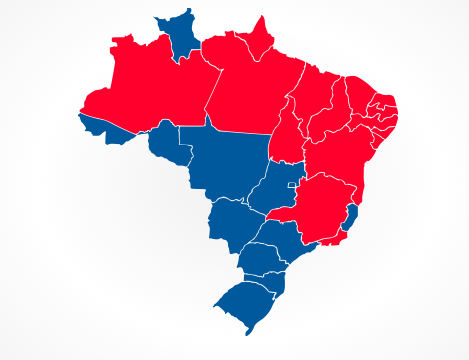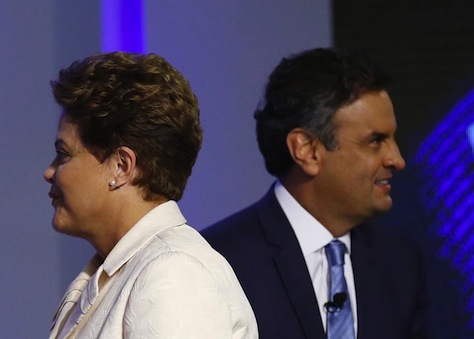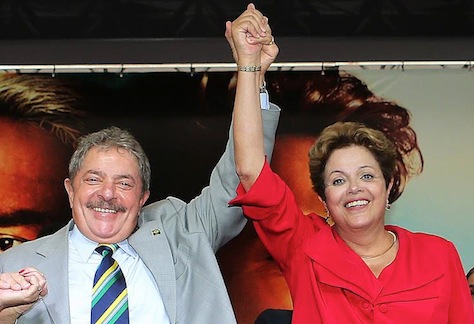It was the closest presidential race since the end of Brazil’s military dictatorship in 1985.![]()
Ultimately, the benefits of incumbency and the track record of poverty reduction were enough to push Dilma Rousseff to reelection against an alliance between her center-right opponent, Aécio Neves, and former candidate Marina Silva, who finished third in the October 5 first-round vote.
Rousseff narrowly defeated Neves by a margin of 51.52% to 48.38% in Sunday’s vote, giving the center-left Partido dos Trabalhadores (PT, Workers Party) a fourth consecutive term in power.
Neves, the candidate of the Partido da Social Democracia Brasileira (PSDB, Brazilian Social Democracy Party), came from behind to win a spot in the runoff after Silva’s candidacy imploded earlier this year. Silva, a former environmental minister who assumed the presidential nomination of the Partido Socialista Brasileiro (PSB, Brazilian Socialist Party), after its initial candidate, former Pernambuco governor Eduardo Campos, died in an airplane crash in mid-August.
Neves, who served as a highly regarded governor of Minas Gerais, Brazil’s second-most populous state, from 2002 to 2010, is a member of the Brazilian Senado (Senate), and he challenged Rousseff aggressively for several high-profile corruption cases, most recently revelations of kickbacks to PT politicians and their allies from Petrobras, the state-owned oil company.
* * * * *
RELATED: Petrobras scandal highlights 12 years of Brazilian corruption
* * * * *
The electorate predictably split between the PT’s supporters in the relatively poorer northeast and the PSDB’s more conservative base in the relatively wealthier southeast. Rousseff narrowly won the crucial battlegrounds of Rio de Janeiro and Minas Gerais, though the PT’s support dropped sharply from its levels in the 2002, 2006 and 2010 elections.
Nevertheless, Rousseff’s PT-led coalition will enjoy a large congressional majority. Voters chose all 513 members of the lower house of the Brazilian congress, the Câmara dos Deputados (Chamber of Deputies) in the October 5 round.
That’s notwithstanding moderate losses for the PT and its largest partner, the ideologically vapid Partido do Movimento Democrático Brasileiro (Brazilian Democratic Movement Party, PMDB), largely at the hands of the Partido Social Democrático (PSD, Social Democratic Party), a party formed in 2011 by former São Paulo mayor Gilberto Kassab and a handful of PSDB and other centrist dissenters, who are also part of Rousseff’s coalition.
So what does Rousseff’s reelection mean for Brazil and for the wider Latin American region? Continue reading Brazil election results: What to expect from Dilma’s second term






